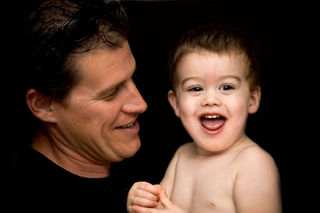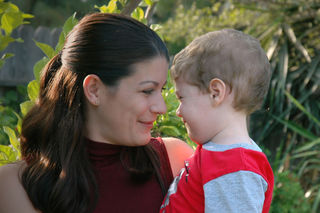Parenting
Older, Single, and Choosing to Be a Parent—Why Not?
The path to parenthood widens for older singles.
Posted November 21, 2016

The headline of an article by Abby Ellin in The New York Times’ Retiring section reads: “Single, 54, and a New Dad.” At age 54, Sparky Campanella felt “he was missing out on something important in life” and chose to become a father.
Campanella has “older” female counterparts doing the same thing. The path to parenthood is shifting. Look who's starting families now: single men over 50; single women in their late 50s; single men and women in their 30s and 40s. Singles have fewer barriers to parenthood than ever before.
The old thinking was, “Marry because you want children.” The belief has been that children with two parents have better outcomes than those raised by a single parent—male or female. That outlook and the research are changing swiftly. Options have broadened for single women and men to become parents. Some of the change is due to the fact that there are more singles age 16 and older in the U.S. than married folks.
Among American teenagers ages 15-19, however, the birth rate has dropped markedly since 2007, reducing pregnancy risk in that age group by 5.6 percent annually (attributed to the use of birth control according to researchers at the Guttmacher Institute). Canada Statistics show that more women in their 40s than teenagers are having babies.
More singles out of their teens and way beyond are choosing to become parents. Single mothers and fathers by choice have possibilities created by advances in fertility technology and by the relaxation of age limitations on adoption.
Nonetheless, Ellin points out in her article that older parents have reservations about raising a child, not necessarily because they are single, but because they are older. Being older presents common challenges and worries: “Will I be around for college graduation?” “Do I have the energy to chase a toddler?” “Will people think I’m the grandparent?” These are some of the same issues many raised when I wrote, 40 (or Close) is the New 20 for Having Babies and 50 Is the New 40 for Having Babies.

More than One “Blueprint”
Bella DePaulo, social psychologist and blogger of Psychology Today’s Living Single column, reports that singles have strong connections to siblings, coworkers, neighbors, parents and friends and are more likely than married couples to stay in touch and keep the relationships strong. In a presentation to the American Psychological Association, “What No One Ever Told You About People Who Are Single,” she notes that singles have more friends than married couples. Given that, a single man or woman deciding to become a parent is likely to have a strong, built-in support system.
“More than ever before, Americans can pursue the ways of living that work best for them. There is no one blueprint for the good life,” Dr. DePaulo said. “What matters is not what everyone else is doing or what other people think we should be doing, but whether we can find the places, the spaces and the people that fit who we really are and allow us to live our best lives.”
Paths to Parenthood for Singles
Whether you are 35 and single, 55 and single, become a widow in your 40s or 50s, divorce before having children, or fall somewhere in between, parenthood possibilities are available. Fertility clinics report noticeable successes, however, their claims should be investigated with caution and a dose of realism. Dr. Mark Sauer, former director of the I.V.F. clinic at Columbia Presbyterian Medical Center, told Jane Brody at The New York Times, "There's hardly any age that the clinics now turn away."
The costs of becoming an older single parent are often steep, but for increasing numbers of singles who are financially able it is reasonable and realistic to at least explore options. Among them are surrogacy, freezing your eggs or freezing your sperm for when the time is right. Investigating adoption is another avenue for older singles who want to be parents.
Long-held stigmas about single mothers have been shown to be incorrect. It seems a good bet that misgivings we may have about older single men and women becoming parents will be proven erroneous as well.
Related:
- 6 Benefits for Children of Older Mothers
- For first-time moms, 40 is the new 30 (CBS News-Sunday Morning)
- On Not Waiting for Mr. Right
- Why More People Don’t Adopt
- Good News for "Older" Mothers: You May Live Longer
Copyright @2016, 2018 by Susan Newman
References
Brody, Jane. "I.V.F.'s Misleading Promise to Those Over 40." The New York Times, October 18, 2016, p. D5.
DePaulo, Bella. “What No One Ever Told You About People Who Are Single,” Plenary Presentation. Denver, CO: The American Psychological Association. Aug. 5, 2016
Ellin, Abby. “Single, 54, and a New Dad: Why Some Start Families Late.” The New York Times, August 5, 2016, p. B5. Online.
Gillespie, B. J., Lever, J., Frederick, D., & Royce, T. (2015). Close adult friendships, gender, and the life cycle. Journal of Social and Personal Relationships, 32, 709-736.
Lindberg, Laura, Santelli, John, and Desai, Sheila.“Understanding the Decline in Adolescent Fertility in the United States, 2007-2012.”Journal of Adolescent Health, August, 2016.




